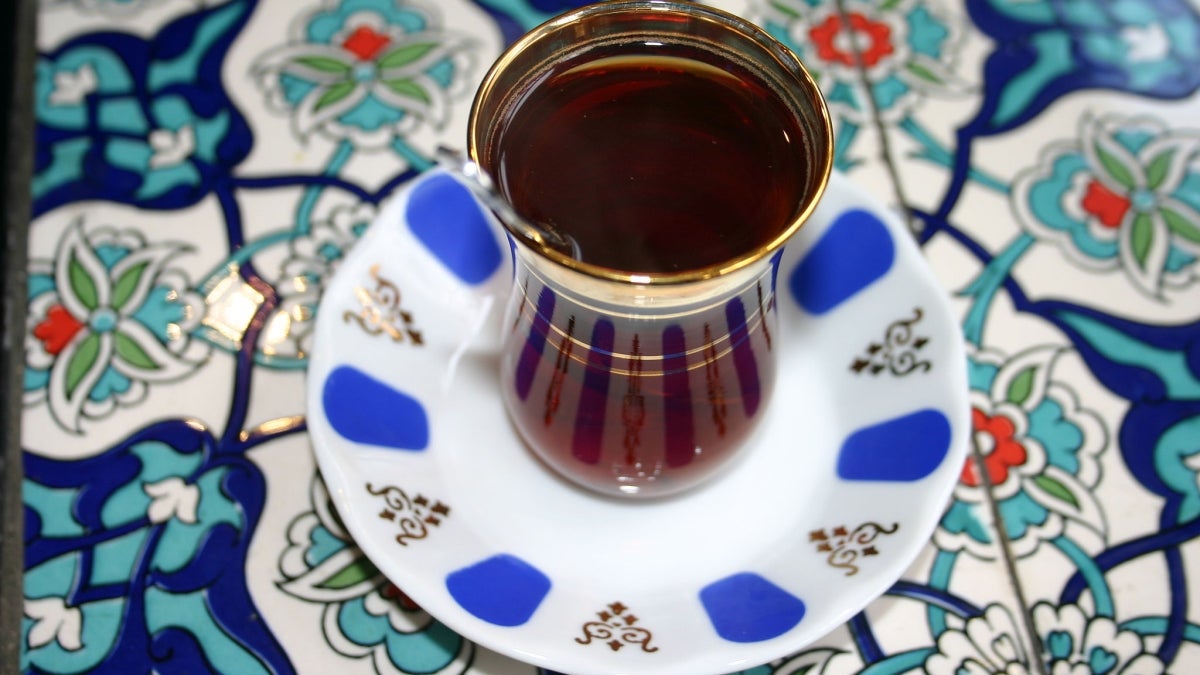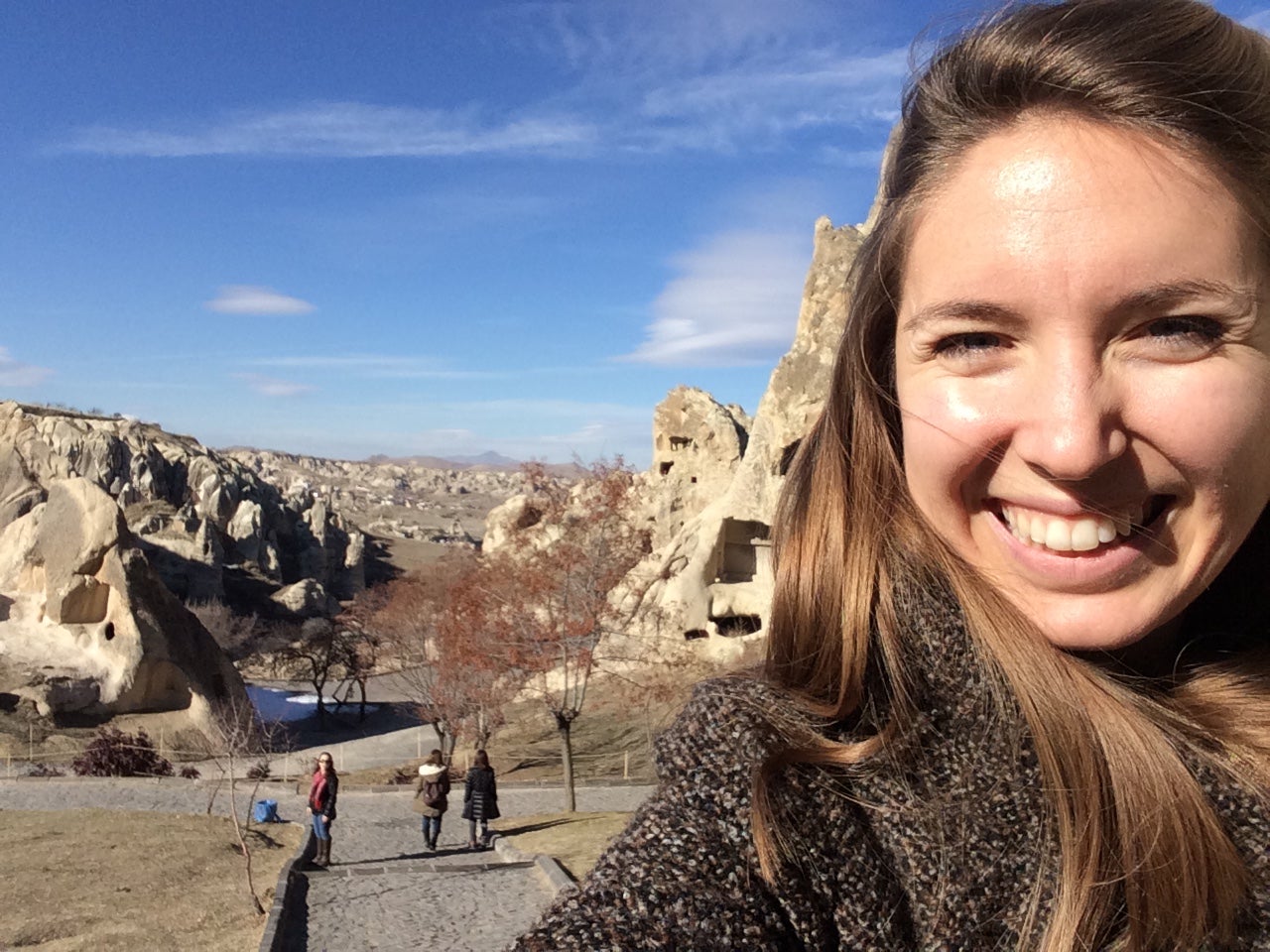Arizona State University graduate Allison Weidemann is spending a year in Turkey, where she has been embraced by the community.
“Turks have a reputation for their notable hospitality and I have absolutely found that to be true,” said Weidemann, who earned an undergraduate degree in sustainability and a master’s degree in global health. She won a Fulbright grant to spend a year as an English teaching assistant.
“The best part of my experience has been being invited into the homes and lives of the people around me. I have joined in the lively traditional dancing at an engagement celebration, and stood solemnly at a graveside as flowers were arranged in memory of a beloved sister.
“I’ve watched my host community react to the refugee crisis with concern and respond to the bombings in their capital with courage,” said Weidemann, who is from Gilbert.
“Turks value making time and space to be together with others to share the bitter and sweet of life.”
ASU graduate Allison Weidemann in Turkey, where she is teaching English after winning a Fulbright award.
She answered some questions about her Fulbright year in Turkey:
Question: Why did you decide to apply for a Fulbright?
Answer: I had previously traveled to Turkey, studied Turkish at ASU, and worked with college-aged English language learners as a student worker in ASU’s Global Launch program, and I had enjoyed these experiences immensely. Thus, when I learned about the Fulbright ETA program in Turkey, I was eager to apply because it offered the opportunity to immerse myself more deeply in Turkish language and culture while helping university students improve their English.
Q: Can you give an overview of what you’re doing in Turkey:
A: I live in Amasya, a charming, small city in north-central Turkey that is situated along a river, nestled between a cluster of mountains and rife with history. I teach listening and speaking to 105 students at Amasya University. My students take a total of about 24 hours of English classes per week as part of a year-long, intensive English preparatory program.
Q: What is a typical day like for you?
A: On a typical day, I chat with some Turkish ladies while waiting for the city bus that I take uphill to the university. I teach two or three two-hour classes, in which I facilitate listening exercises, group discussions and activities in order to help my students practice processing and producing spoken English. In the middle of the day, I eat lunch with my Turkish colleagues at the university dining hall. I walk home after school, bumping into and having short exchanges with my students as I make my way down the hill. I usually unwind by making dinner and watching television with my Turkish roommate (to practice my own listening comprehension) or by going out to a restaurant or café with friends.
Q: What do you do on the weekends?
A: On the weekends that I don’t travel to another of Turkey’s many incredible sights and cities, I hang my laundry out to dry on my balcony before walking to the “Pazar” (bi-weekly farmer’s market) to buy produce for the week. I usually do some lesson planning, catch up with my friends and family back home, and spend time with Turkish or ex-pat friends walking along the river or sitting at a café playing “tavla” (backgammon) while sipping “çay” (Turkish tea).
Q: Have there been any challenges?
A: Starting life over in a new setting and a new language has been extremely humbling. Especially during the first few weeks, the simplest tasks were enormous challenges. My first time at the grocery store, I remember thinking, “Here I am, a Fulbright scholar at the height of achievement, and I’m making my shampoo selection based purely on the color of the bottle since I can’t make anything else out!” Looking back, those kinds of moments are some of my funniest memories.
Q: What will you bring back from your experience that will help you in your career — or your life?
A: I will bring back major empathy for people who start over in a completely new context. I will also be able to draw from the language-learning strategies that I’ve acquired here in my future language learning and teaching pursuits.
Q: What’s next for you, after you return?
A: The Fulbright ETA program in Turkey is unique in that it offers the option to renew your grant and stay for a second year. After my second year in Turkey, I want to return to Phoenix and continue working with English language learners, whether refugees, immigrants or international students, to extend hospitality and assist their social and cultural adjustment.
Q: What would you tell someone who is contemplating applying for a Fulbright?
A: Once the glitter of the prestige of winning a Fulbright settles to the ground, you will find yourself in one of the most challenging, humbling and stretching situations of your life. However, the lessons learned, relationships developed and perspective gained from such an experience make it absolutely worth it.
Top photo courtesy of Wikimedia Commons
More Local, national and global affairs

Overdose crisis involves more than opioids, says ASU social work professor
News coverage about the escalating number of drug overdoses in the United States can lead many to conclude that so long as you’re not overdosing yourself, the crisis doesn’t really affect you.Wrong,…

What’s next for unions? ASU center investigates evolving strategies in new report
Port workers hanging up their hats on the East Coast. Starbucks employees putting down their aprons before Christmas. Ski patrollers signing off in Park City as fresh powder piles up. The past year…

Protecting national security in a rapidly changing world
As the 21st century dawned, the challenges facing our nation and the world — such as cyberthreats, resource scarcity and space security — became too big to solve with traditional research methods.…

